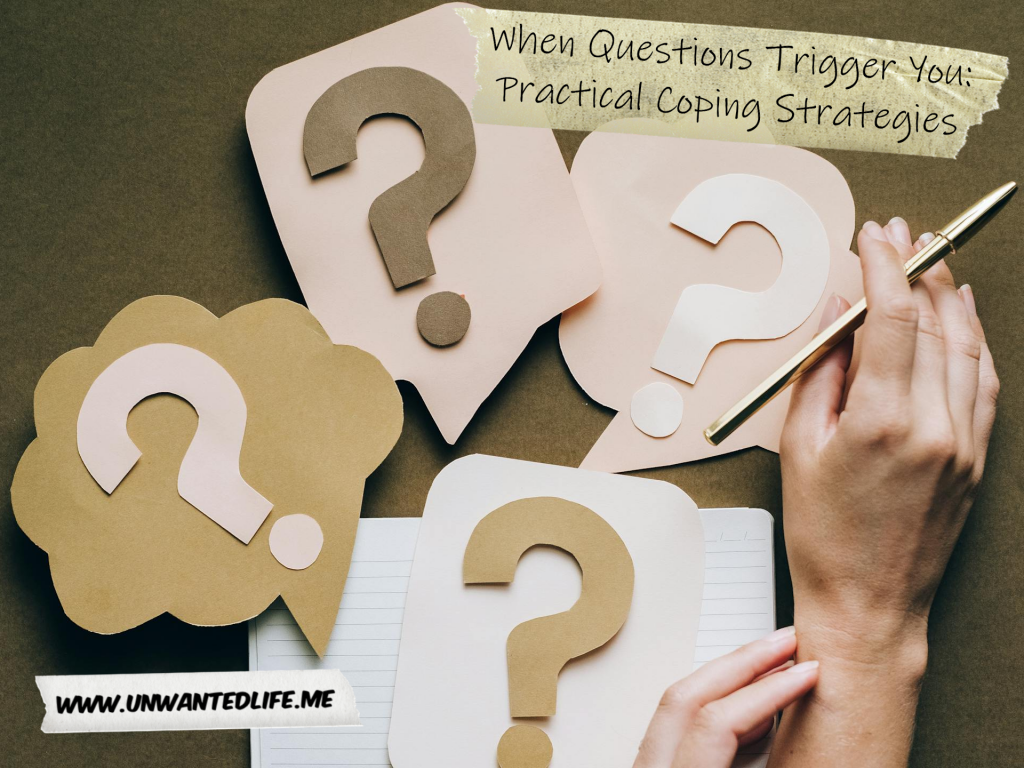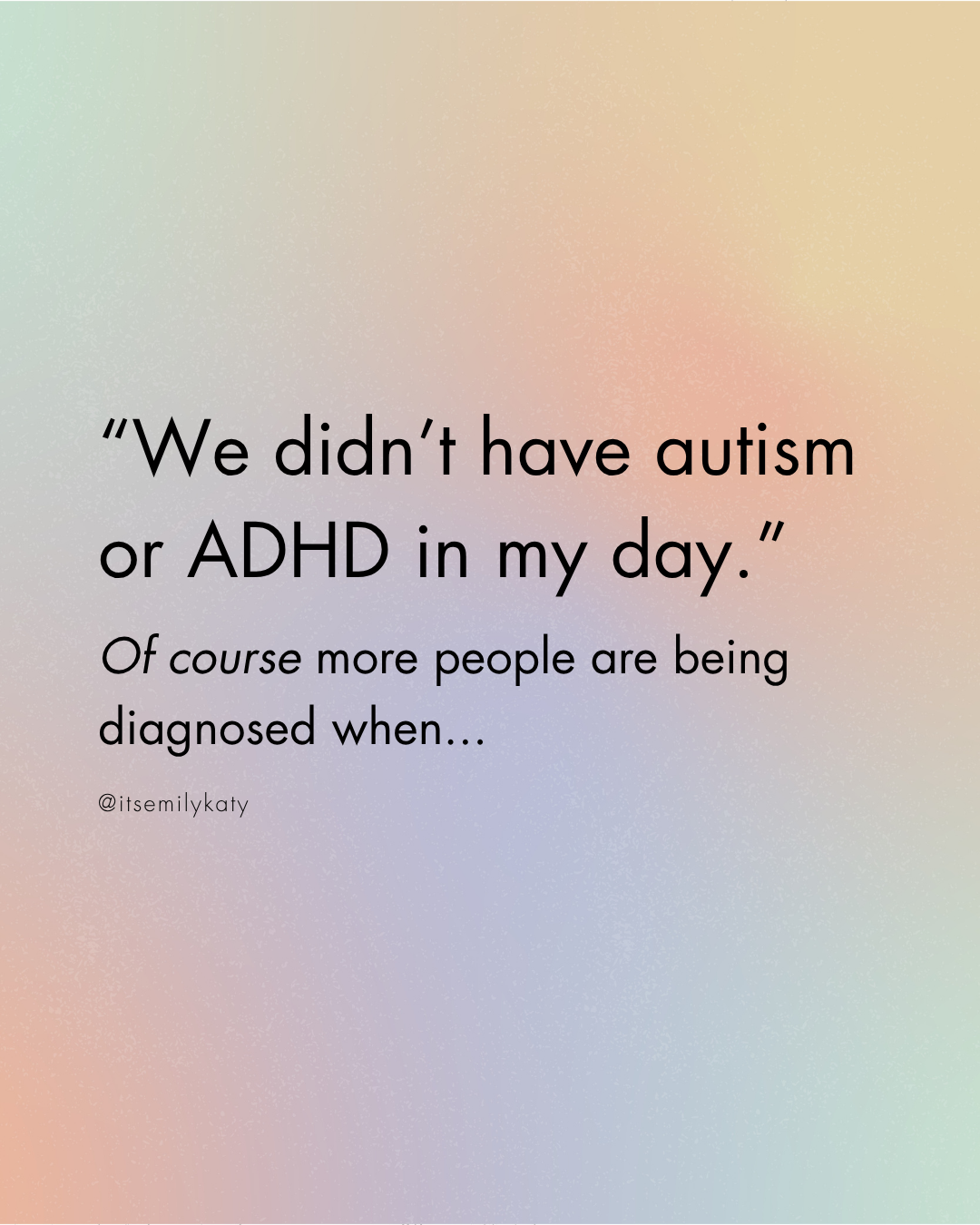I don’t often look at my site’s statistics, as I want to write what I write, rather than being drawn into how I can poor my blog is doing, especially since this can lead to me making unhealthy comparisons. However, today I did, and I noticed a query that led to people visiting my blog, which was, “Why do questions trigger me psychology?”.
At first, I remembered I wrote an article on how a well-meaning question can be a trigger, but I felt the way this was phrased went further than that, and presto, this article on ‘when questions trigger you’ was born.
When Questions Trigger You, What Does That Mean?
Previously, when talking about being triggered by a well-meaning question, my focus was on how being asked if you’re ok can increase anxiety. But now I’m looking at this dynamic through a wider lens. Being triggered by questions means that a question, even seemingly innocuous ones, can evoke an intense emotional reaction, often one that is disproportionate to the question itself. This can happen for a variety of reasons.
Past experiences and trauma
Our pasts are one of the most common reasons to be triggered by a question. Questions can inadvertently tap into unresolved past experiences, especially traumatic ones. For example, a question about a family member might trigger intense sadness or anger if that relationship was abusive or resulted in loss. This is particularly relevant for people with post-traumatic stress disorder (PTSD), where certain stimuli can lead to flashbacks or intense distress, and complex post-traumatic stress disorder (cPTSD).
Upon digging into this, I came across a few people on Reddit who have expressed how they’ve been triggered by questions, which I thought I’d share below:
Triggered by questions. Makes it difficult for me to step out further.
by inCPTSD_NSCommunity
Sensitive topics
As Mark Twain once said, “Never discuss politics or religion in polite company” (Zweber, 2025). This had often been expanded to include sex and money (Culpeper, 2011). Some topics are inherently sensitive due to social norms, personal values, or the potential for stigma.
Questions about finances, relationships, health, or personal beliefs can be perceived as intrusive or threatening, leading to discomfort, defensiveness, or a desire to avoid the topic. That’s my relationship with my mum in a nutshell.
Fear of judgment or criticism
Even a well-meaning question, such as asking if someone is ok, can be interpreted negatively, such as being seen as a judgment or criticism, especially if the person asking holds a position of perceived authority or the person being asked has underlying insecurities.
In my previous article on how a well-meaning question can trigger someone with anxiety, and how this was what first caused my anxiety and psychosis to develop, being asked this question caused self-doubt. This led me to question my reality. But for others, this might make them feel that they’re not hiding their anxiety well enough. A part of having anxiety is hoping no one else notices you have anxiety.
A feeling of a lack of control
It’s possible that for some, being put on the spot or feeling interrogated can cause a sense of powerlessness, which can be distressing. This is particularly true if the questions feel relentless or too personal. When someone feels they lack control, we often try to compensate to get that sense of control back.
Violation of privacy
People have varying boundaries regarding personal information. Questions that delve into areas a person considers private could be met with resistance, anger, or a feeling of being violated.
Social desirability bias
Some questions might pressure people to provide answers that are socially acceptable rather than truthful, leading to internal conflict and discomfort. For example, people may agree or say things that align with the person who’s asking’s views, rather than their own, so they’ll be accepted.
Rumination and introspection
This is often linked to trauma, where questions, especially those in therapeutic settings, can prompt people to focus on distressing symptoms or experiences they might have been trying to avoid. This forced introspection can lead to increased anxiety, sadness, or rumination.
Cognitive biases and beliefs
Our pre-existing cognitive biases or deeply held beliefs can influence how we perceive questions. If a question challenges a core belief, it can be met with strong emotional resistance. Our core beliefs can be healthy or unhealthy, but most issues are likely to reside in unhealthy core beliefs, which will also increase the likelihood of a person having cognitive biases.
When Questions Trigger Us, What Next?
Understanding why certain questions can be triggering is crucial for understanding ourselves and our emotional responses better.
Awareness
If we find ourselves triggered by a question, we admit to the fact that we’ve been triggered. That doesn’t mean you always have to tell the other person that you’ve been triggered, but at least acknowledging to ourselves helps remove shame. It also allows us to know what areas we may need to work on.
Journaling
Any time we are triggered or can recall when we’ve been triggered can make for a useful journaling exercise to get a better understanding of why we were triggered. Writing about what happened at the time, what went through our minds, and what physical sensations we experienced can all be useful information for tackling this issue.
Breathing and grounding
When we feel triggered by a question, take a moment to take a couple of deep breaths to help calm ourselves. If possible, remove ourselves from the situation and do a whole breathing or grounding exercise.

Self-compassion
One of the biggest issues we face as humans is how we often treat others with more kindness than we do ourselves if someone else were in the same position. It’s ok to have strong reactions. So treat ourselves with the same kindness and understanding as we would if it were our loved one in the position we find ourselves in.
Challenge
Sometimes our reactions are rooted in unhealthy core beliefs or as a result of poor mental health, such as excessive worrying caused by anxiety. It can be useful to challenge these beliefs and negative intrusive thoughts. Again, this is something we can do as part of your journaling, but we can also learn some basic thought challenges to help us do this on the fly. Thought challenges like reframing and putting your thoughts on trial and two of the best for this.
Therapy
For those of us who frequently experience such triggers, therapy can be a valuable tool to explore the underlying causes and help us process what happened, so we can start using appropriate coping strategies, if still needed.
Polite disengagement
Another way to handle the situation in the moment is to politely state that we’d rather not answer the question, as it’s our right not to. This is a boundary we’re all allowed to have. We can also try changing the subject if that feels easier, or redirecting/reframing the question.
Summary
When questions trigger you, it can be because of a variety of reasons. Sometimes we may be well aware of why we got triggered, but that’s not always the case. If, like me, when my anxiety was at its worst, a well-meaning question was enough to trigger me. But that doesn’t mean there’s nothing we can do about it, whether we know why we’re being triggered or not.
Steps like journaling about what happened when we were triggered are a great way to start to reflect and explore our minds so we can grow. But therapy is always an option, as a therapist will help us explore the causes in a safe environment without judgment.
As always, leave your feedback in the comments section below. Also, please share your experiences when questions trigger you in the comments section below as well. Don’t forget, if you want to stay up-to-date with my blog, you can sign up for my newsletter below. Alternatively, click the red bell icon in the bottom right corner to get push notifications for new articles.
Lastly, if you’d like to support my blog, please find the PayPal and Ko-fi donation payment options below. Until next time, Unwanted Life readers.
References
Culpeper, J. (2011). Impoliteness: Using language to cause offence (Vol. 28). Cambridge University Press. Retrieved from https://wp.lancs.ac.uk/corpusforschools/files/2020/12/Sensitive-topics-in-social-interaction.pdf.
Zweber, T. (2025, March). Discussing politics in polite company. Dairy Star. Retrieved from https://dairystar.com/stories/discussing-politics-in-polite-company,27438.










